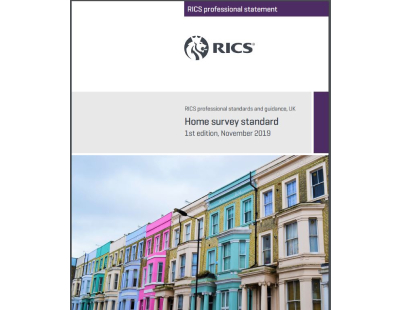It’s a tough old road for today’s first-time buyers, with house prices and mortgage interest rates much higher than they were as recently as three years ago. Whereas the parents and grandparents of the aptly named ‘generation rent’ enjoyed maximum mortgage terms of 25 years or less, a worrying trend now faces those lucky enough to become a homeowner.
40-year mortgages, according to UK Finance, have seen a dramatic increase over the past two years. In February 2022, 8% of all first-time buyers opted for a mortgage term of 35 years or more. By February of this year, that figure had risen to 18%. Meanwhile, 38% of all mortgage applicants opt for a 30-35 year mortgage term.
This is a clear sign of the times, and with most brokers blaming affordability for the struggles today’s first-time buyers' experience, it’s no surprise that lenders are beginning to adjust their terms accordingly. In fact, according to Moneyfacts, 67% of all mortgage products currently available have a standard maximum term of up to 40 years.
Below I look into the impact of longer-term mortgages on buyers and why it’s a good idea to have an independent broker compare mortgages for you, and advise you on all other options available, before you commit to one.
How is this affecting first-time buyers?
According to the Office for National Statistics (ONS) earnings have doubled since 1997, whereas house prices have increased four-and-a-half times. Although first-time buyers are older than they were in past decades, with an average age of 34, they are still typically younger adults that won’t necessarily have reached their peak income.
With the average UK property currently costing £288,000, a full-time employee on an average salary would need to borrow eight times their annual income to afford one. As most lenders cap their loan-to-income (LTI) ratio at 4-5%, this leaves a massive income shortfall for today’s first-time buyer.
To meet a lender’s affordability criteria, first-time borrowers therefore need a very large deposit, or a very long period to repay the loan. With the cost of living crisis squeezing everyday finances, a large deposit is even more difficult to achieve, meaning a longer mortgage term may be the only option for some.
Should I get a 40-year mortgage?
According to Primis, the UK’s second-largest mortgage network, borrower affordability issues dominate the queries they receive from brokers in their network. They also report a significant increase in joint borrower sole proprietor and guarantor mortgages, both of which are products aimed at family and friends helping (predominantly) first-time buyers meet affordability criteria.
Of course, not every first-time buyer has access to help from loved ones, and there is no sign of an imminent replacement of the help-to-buy scheme across most of the UK. This means that other options, such as extending the loan term, are understandably appealing to those who want to get onto the property ladder.
Whether or not a 40-year mortgage term is the right choice for you depends on several factors, but generally, the shorter the mortgage term, the less interest you’ll pay overall. To put it in perspective, the average life expectancy in the UK is 81 years – so you would essentially spend half of your life paying for your home.
Pros and cons of longer mortgage terms
The main benefit of borrowing over an extended period is that it aids affordability, but at what cost? The short and long-term benefits are:
Pros
- It may mean you can meet otherwise out-of-reach lender affordability criteria and get onto the property ladder sooner.
- It may enable you to borrow more.
- It can reduce your monthly outgoings.
Cons
- The longer the term, the more interest you’ll pay overall For example: a £150,000 capital repayment mortgage at 4% interest would result in £87,528 in interest payments over a 25-year term. At 35 years this becomes £129,000 and at 40 years £150,917 in interest – more than you borrowed.
- Equity will be gained more slowly with a longer term, as you’re repaying the loan more slowly. This puts you at greater risk of falling into negative equity (where you owe more than your home is worth), especially if you’ve also used a low deposit.
- Many borrowers will be repaying their mortgage well into retirement with a mortgage term of 40 years – unless overpayments are made.
- If your financial situation deteriorates, it’s unlikely you’ll be able to extend your term any further to reduce your repayments and aid affordability later on.
- Life insurance costs will likely be higher due to the longer term to be covered.
How can I make a 40-year mortgage term work for me?
As with every form of finance, specific products suit some people more than others, depending on their circumstances and needs. It’s best to speak to a mortgage broker when looking at which product is the right one for your circumstances.
If you’re expecting to receive an inheritance in the future, or you’re in a career with a pay structure with significant increases, such as a junior doctor, a 40-year mortgage term could help you to lower your initial repayments. You might be able to use future income to reduce the term, by paying off a lump sum of the loan or increasing your monthly repayments as and when you can afford to.
This may help you get a more competitive rate later on, especially with a lump sum repayment, as this will immediately increase the equity you hold in your home. When it comes to re-mortgaging, the more equity you have, the better the rates that become available to you are.
How can I avoid a 40-year mortgage term?
Although some people might benefit from using a 40-year mortgage term initially, unless you are certain that you’ll be able to reduce the term later, it’s worth considering other options to aid affordability.
For example, joint borrower sole proprietor mortgages allow you to use the income of willing family members or friends, alongside your own, to help you meet your loan repayments, while you retain full ownership of the property.
You could also consider buying jointly with family and friends – some lenders allow up to four people to buy a property together. In this case, all applicants’ incomes will be considered when calculating affordability.
If you don’t have family or friends that are able to help, but are still keen to get on the property ladder, you could consider a government home ownership scheme. The shared ownership scheme, for example, allows you to buy as little as 10% of a property and rent the remaining portion from a housing association. You can then – in most cases – increase your ownership up to 100% in stages, when you can afford to do so.
























Join the conversation
Jump to latest comment and add your reply
40 year mortgages, 100% mortgages and shared-ownership schemes are a sad reflection on the current state of the UK housing market. None of the three things listed is a desirable mechanism for getting onto (or perhaps up) the property ladder, but I suppose 'needs must' for FTBs in particular. The danger in the current cyclical downturn is the return of widespread negative equity and while many new homeowners will be able to get by until house price growth resumes, a minority (eg because of unemployment) will be forced to sell, so crystallising their debt. This said, the chronic shortage of supply in many parts of the country (which shows no realistic sign whatsoever of being resolved) should ensure that most of those forced into relying upon one of these mechanisms will be rewarded for their bravery.
Please login to comment